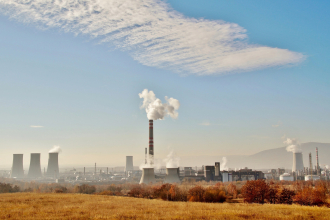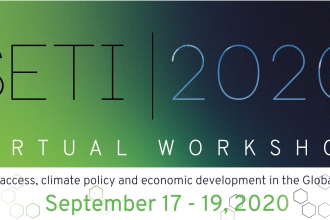
”The time is right to implement carbon taxes”
A new report published by the renowned think tank Brookings features one section called Recipe for a green recovery: Carbon taxes.“We have been preaching about carbon taxes for decades, but we think…

A new report published by the renowned think tank Brookings features one section called Recipe for a green recovery: Carbon taxes.“We have been preaching about carbon taxes for decades, but we think…

Since the protest actions of the "yellow vests" in France began in 2018, it has been argued that poorer households are more badly affected by carbon pricing since they spend a higher proportion of…
We compare the effects of price and quantity instruments (an emissions tax and a quota with tradable permits) on the incentive to innovate to reduce the cost of an emission-free technology. We assume that the government cannot commit to the level of a policy instrument before R&D occurs but sets the level to be socially optimal after the results of R&D are realized. The equivalence of price and quantity instruments in inducing innovation that is seen in end-of-pipe abatement models does not hold.
Many countries have implemented policies to tackle climate change, with Emissions Trading Schemes (ETS) being one of the foremost attempts. Under such schemes, firms receive emission allowances. The firms that are covered by the rules are required to submit allowances for their emissions or, if they emit more than the allocated allowances, to purchase emission reduction from other firms. This imposes an emission price for carbon emissions and provides a cost-effective way for firms to comply.
As an industry intensively using fossil fuel, the power sector is naturally a focus of efforts to slow climate change. In March 2015, China started the third round of power sector reform with the announcement of “Opinions on Further Deepening Power Sector Reform” (referred as the No. 9 Document), trying to promote competition, strengthen regulation and, importantly, achieve green development. But did the reform really achieve its expected goals?
Policy makers often express concern about the impact of carbon taxes on employment and GDP.

Register now! On September 17 – 19, 2020, SETI will organize its fifth annual workshop on global energy transitions research. The workshop will be held virtually over Zoom, and will feature sessions…
A Webinar and Dialogue on Managing Climate Change in Post COVID-19 Nigeria: Policy Options for Low-Carbon Climate Resilient Development Registration Coming Soon